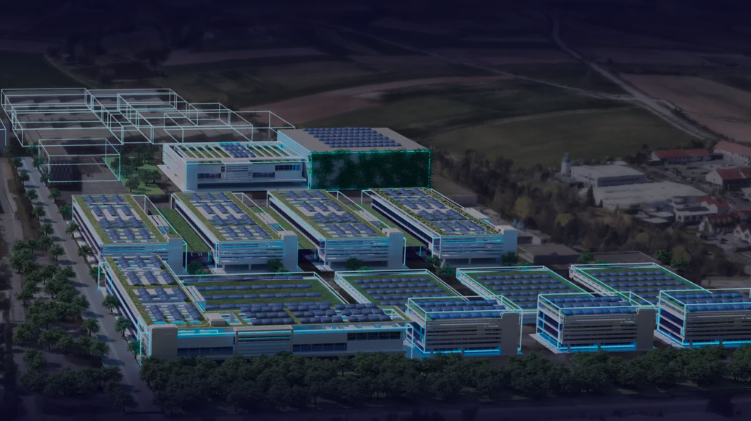Ever heard of the ‘Industrial Metaverse’? Well, it seems that the importance of the industrial metaverse is greater than we originally thought. A notable example of this is Siemens’ recent announcement of a €1 billion investment to launch a global R&D hub for the industrial metaverse in Germany. Let’s dive in!
TL;DR:
- Siemens is investing €1 billion in a global R&D hub for the industrial metaverse in Germany.
- The industrial metaverse replicates real industrial spaces in a 3D format and uses advanced technologies such as digital twins, AI and blockchain.
- Siemens’ investment highlights the value and potential of this metaverse.

What is the Industrial Metaverse?
So, what exactly is the industrial metaverse? It is an advanced industry that replicates and simulates real-world systems using advanced technologies. It provides immersive and interactive experiences by leveraging digital twins, AI, extended reality, blockchain, and cloud and edge computing.
Clearly, this metaverse has the potential to transform work processes and deliver great value to businesses and societies. By enabling companies to model, prototype and test design iterations in a physics-based virtual environment, the industrial metaverse enables digital problem solving in the real world. In addition, it provides a seamless connection between the physical and virtual worlds, providing a more accessible and cost-effective approach to work.
While consumer-facing metaverse applications are still in development, the industrial metaverse focuses on practical use cases that address real-world challenges and align with business needs. Implementing these solutions can improve resource efficiency, increase business competitiveness and contribute to sustainability and resilience goals.

Siemens makes a billion-euro bet: building the future of real-world simulations
Siemens made an important announcement. They have unveiled their massive €1 billion investment to establish a global research and development hub for the industrial metaverse in Germany. While this metaverse may be new to many, it is certainly significant. Essentially, it’s about creating a 3D version of real industrial spaces. It replicates all operations and objects within that environment, such as people, products, and machines.
By simulating physical spaces in the metaverse, companies can assess how each movement in space affects others. They can then use artificial intelligence technology to optimize the movement of objects. This innovative approach is both futuristic and exciting! Especially for large companies like Siemens, which can gain a lot of value.
Rather, the belief was that metaverse products like Axie Infinity or Decentraland would drive mass adoption of the metaverse. Siemens’ bold move, however, suggests an alternate route to metaverse adoption. Significantly, Siemens’ €1 billion investment in R&D proves their strong belief in the potential of the industrial metaverse.
